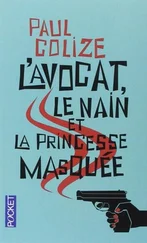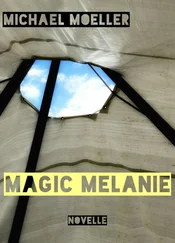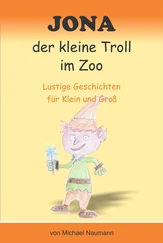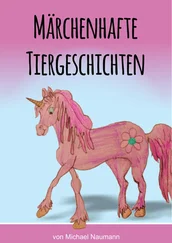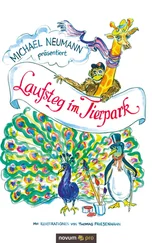Ours was a childhood of deprivation. Not material deprivation – we had enough to get by on – but a lack of identity. We were nobody. Our parents were nobody. Our forefathers had made no mark whatsoever on Swedish history. Our surnames were unspellable, not to mention being unpronounceable for the few supply teachers who found their way up north from the real Sweden. None of us dare write in to Children’s Family Favourites because Swedish Radio would think we were Finns. Our home villages were too small to appear on maps. We could barely support ourselves, but had to depend on state hand-outs. We watched family farms die, and fields give way to undergrowth. We watched the last logs floating down the River Torne when the ice melted, before it was banned; we saw forty muscular lumberjacks replaced by one diesel-oozing snow-mobile; we watched our fathers hang up their heavy-duty gloves and go off to spend their working week in the far-distant Kiruna mines. Our school exam results were the worst in the whole country. We had no table manners. We wore woolly hats indoors. We never picked mushrooms, avoided vegetables, never held crayfish parties. We were useless at conversation, reciting poems, wrapping up presents and giving speeches. We walked with our toes turned out. We spoke with a Finnish accent without being Finnish, and we spoke with a Swedish accent without being Swedish.
We were nothing.
There was only one way out. Only one possibility if you wanted to be something, no matter how insignificant. You had to live somewhere else. We learnt to look forward to moving, convinced it was our only chance in life, and so we moved. In Västerås you could be a person at last. In Lund. In Södertälje. In Arvika. In Borås. There was an enormous evacuation. A flood of refugees that emptied our village, but strangely enough it felt voluntary. A phoney war.
The only ones who ever returned from the south were those who died. Car crash victims. Suicides. And eventually also those killed off by AIDS. Heavy coffins dug down into the frozen earth among the birch trees in Pajala cemetery. Home at last. Kotimaassa.
Niila’s house had a view over the river and was in one of the oldest parts of Pajala. It was a spacious, well-built house from the end of the previous century, with large, small-paned windows along the long walls. If you examined the façade closely, you could see traces of where it had been extended. There were still two chimneys from two separate hearths: the house had been too big to be heated by just one fire. When Laestadianism was at its peak, the house had been a natural grey colour; but at some point in the 1940s it had been painted the traditional Swedish red, with white window surrounds. The rough corners had been sawn and planed in accordance with the new fashion, to make sure the house couldn’t be mistaken for an overgrown barn – much to the distress of national archivists and other persons of good taste. On the river side were grassy meadows that had been fertilised for thousands of years with river silt every time the thaw came, and they produced abundant and rich hay, perfect for boosting milk production. At this very spot several hundred years ago, one of the earliest settlers had taken off his birch-bark rucksack and created a smallholding for himself. But the grass in the meadows had not been harvested for years. Creeping bushes and undergrowth had thrust up their sauna twigs here, there and everywhere. The place stank of gloom and decline. Visitors did not feel welcome there. There was a chill about the spot, like that of someone browbeaten so relentlessly as a child that all the bitterness had been directed inwards.
The cowshed was still standing, and over the years it had been turned into a shed and a garage. We’d just finished school, and I’d gone home with Niila. We’d exchanged bikes for the day. He’d borrowed mine, which was rather flashy with a racing saddle and drop handlebars. I was riding his Hercules – ‘just the thing for knobbly knees’, as the nastier element in class three used to shout at him when he rode past. As soon as we got to his house, Niila dragged me with him to the cowshed.
We sneaked up into the loft, up the steep, axe-hewn stairs that had been polished by a century’s feet. It was semi-dark up there, with only one small glazed window to admit the afternoon sun. There were piles of junk everywhere – damaged furniture, a rusty scythe, enamel buckets, rolled-up carpets smelling of mould. We paused by one of the side-walls. It was dominated by a huge bookcase full of volumes with worn, brown leather spines. Religious tracts, collections of sermons, books on ecclesiastical history in both Swedish and Finnish, row after row of them. I’d never seen so many books at the same time before, apart from in the library on the top floor of the Old School. There was something unnatural about it, something decidedly unpleasant. Far too many books. Who could possibly ever manage to read them all? And why were they there, hidden away in a cowshed, as if there was something shameful about them?
Niila opened his satchel and took out his reader starring Li and Lo. We’d been given an extract to prepare for homework, and he found his way to the page, turning them over with his clumsy, boyish fingers. Concentrating hard, he started mouthing the letters one after another, spending an enormous effort on connecting them up to form words. Then he grew tired of it and slammed the book shut with a bang. Before I’d caught on to what was happening, he hurled it down the stairs with tremendous force. It landed awkwardly and the spine broke against the rough floorboards.
I looked doubtfully at Niila. He was smiling, with red patches on each cheek, reminiscent of a fox with long canines. Then he plucked a tract from the enormous bookcase, quite a small volume with soft covers. Defiantly, he flung that downstairs as well. The thin, silky pages rustled like leaves before it crashed to the ground. Then followed in quick succession a few volumes of collected works, heavy brown tomes that disintegrated with a crack as they landed.
Niila looked encouragingly in my direction. I could feel my heart starting to pound with excitement as I reached for a book. Flung it down the stairs and watched several pages flutter out before it thumped down into a rusty wheelbarrow. It looked outrageously funny. Growing more and more ecstatic we hurled down more and more books, egging each other on, spinning them up in the air, kicking them like footballs, laughing until we choked as the shelves were emptied one after another.
All of a sudden Isak was standing there. Broad-shouldered like a wrestler, black and silent. Not a single word, just big, fleshy fingers trembling as he unfastened the buckle of his belt. He ordered me away with one brief gesture. I crept down the stairs like a rat then bolted for the door. But Niila stayed behind. As the cowshed door closed behind me, I could hear Isak starting to beat him.
Just for a moment I look up from the notepad I started filling in Nepal. The commuter train is approaching Sundbyberg. The morning rush hour, the smell of damp clothing. In my briefcase is a file with twenty-five corrected school essays. February slush, and over four months to go before the Pajala Fair. I sneak a look out of the train window. High over Huvudsta is a flock of jackdaws, circling excitedly round and round.
I switch my attention back to Tornedalen. Chapter five.
— about two hesitant winter warriors, chain thrashings, and the art of stamping out a ski slope
Every day when lessons were over at the Pearly-Girly School, hordes of sixteen- and seventeen-year-old girls would come swarming past our house. Pretty young things. This was the sixties after all, with lots of mascara, false eyelashes, mini-skirts and tight plastic boots. Me and Niila used to perch on the snowdrift outside our house and check them out. They would saunter past in bunches, chatting away, bare-headed no matter how cold it was, so as not to disturb their hairdos. They smoked like chimneys, and left behind a sickly-sweet smell of ashtrays and perfume that I associate to this day with desire. Occasionally they might say hello to us. We’d be incredibly embarrassed, and pretend we were building a snow fortress. Even though we were only seven, we were certainly interested in them, in a way. You couldn’t really say we were randy, it was more of a vague longing. I’d have loved to have kissed them, to get close to them. Snuggle up to them like a little kitten.
Читать дальше

